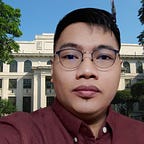The Eichmann Case
Adolf Eichmann was one of the most pivotal actors in the implementation of the “Final Solution.” Charged with managing and facilitating the mass deportation of Jews to ghettos and killing centers in the German-occupied East, he was among the major organizers of the Holocaust. His 1961 trial in Jerusalem, Israel sparked international interest and heightened public awareness of the crimes of the Holocaust.
After World War II, Nazi war criminal Adolf Eichmann was arrested by American authorities and held in detention camps for SS members, but succeeded in escaping suspicion by using fictive identity papers. When he learned that his true identity had been discovered, he escaped from a work detail and eventually succeeded in fleeing Europe to Argentina, where he lived under the assumed name Ricardo Klement. He was eventually joined by his family and lived quietly, working in a Mercedes-Benz factory in Buenos Aires.
Unlike the International Military Tribunal Trial at Nuremberg and the subsequent Nuremberg proceedings, which relied extensively on written documents, the Eichmann Trial put survivors at center stage. Testimonies of Holocaust survivors, especially those of ghetto fighters such as Zivia Lubetkin, generated interest in Jewish resistance. The trial prompted a new openness in Israel; many Holocaust survivors who had heretofore remained silent about their experiences felt able to share their experiences as the country confronted this traumatic chapter.
The legal basis for the charges against Eichmann was the 1950 Nazi and Nazi Collaborators’ Punishment Law, which allowed Israeli courts to punish Nazi perpetrators for crimes against Jews during World War II. Israeli attorney general Gideon Hausner signed a bill of indictment against Eichmann on 15 counts, including crimes against the Jewish people and crimes against humanity. After the Wannsee Conference (January 1942), Eichmann coordinated deportations of Jews from Germany and elsewhere in western, southern, and northern Europe to killing centers , through his representatives Alois Brunner, Theodor Dannecker, Rolf Guenther, and Dieter Wisliceny and other “ Eichmann-Maenner” [Eichmann-Men]. Eichmann made deportation plans down to the last detail. Working with other German agencies, he determined how the property of deported Jews would be seized and made certain that his office would benefit from the confiscated assets. He also arranged for the deportation of tens of thousands of Roma (Gypsies).
Eichmann was also charged with membership in criminal organizations — the Storm Troopers (SA), Security Service (SD), and Gestapo, all of which had been declared criminal organizations in 1946 in the verdict of the Nuremberg Trial. As head of the Reich Security Main Office’s section for Jewish affairs, Eichmann coordinated with Gestapo chief Heinrich Mueller on a plan to expel Jews from Greater Germany to Poland, which had set the pattern for future deportations.
Eichmann, testifying from behind a glass booth in order to protect him from possible assassination, asserted that he had not dictated policy, but only carried it out — that he was “merely a little cog in the machinery” of destruction. In his last day of testimony, he admitted that while he was guilty of arranging the transport of millions of Jews to their deaths, he did not feel guilty of the consequences.
Although Eichmann followed the common plea of Nazi perpetrators that he was only following the orders of others, his judges concluded that Eichmann had been a key perpetrator in the genocide of European Jewry. On December 12, 1961, he was found guilty of several of the charges asserted in the original indictment, and on December 15 sentenced to death.
On June 1, 1962, Eichmann was executed by hanging. His body was cremated and the ashes were spread at sea, beyond Israel’s territorial waters. The execution of Adolf Eichmann remains the only time that Israel has enacted a death sentence.
United States Holocaust Memorial Museum, Washington, DC, accessed 14 September 2020 < https://encyclopedia.ushmm.org/content/en/article/eichmann-trial >
